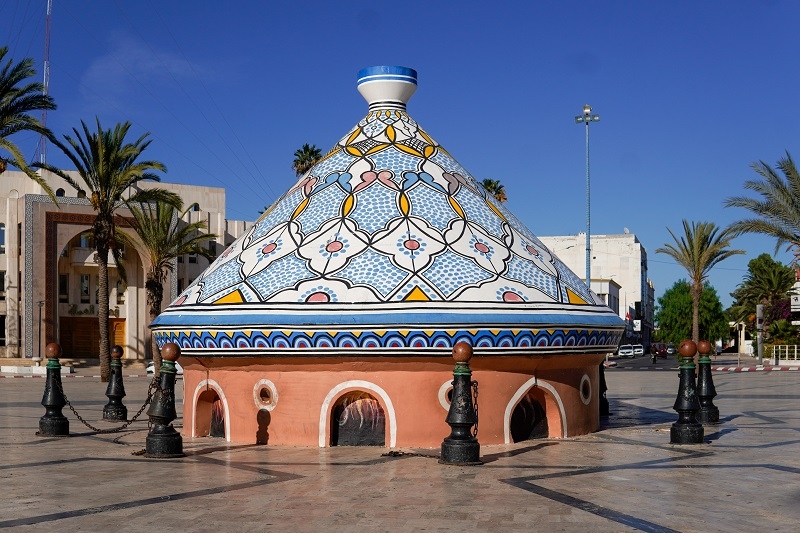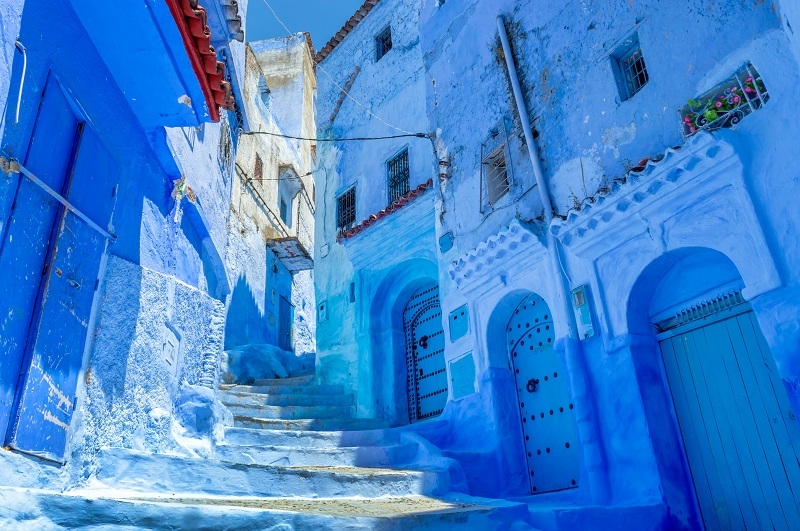
Morocco shines with its bright colors, lively markets, and ancient customs. While most travelers are attracted by the picturesque sceneries and vibrant souks, the Jewish cultural heritage of Morocco provides a unique view into the country's past. To visit Jewish cultural sites in Morocco is neither only to wander the old streets nor to go into the holy places—it is to come into contact with the faith, community, and food traditions that have been prospering for ages.
The country of Morocco is home to various ancient synagogues, vibrant Jewish quarters as well as kosher dining and festivals, all of which are very attractive to visitors of faith-based travel in North Africa. It does not matter if you have interest in history, love good food, or are a spiritual traveler, the Jewish-related places in Morocco are nothing less than a psychedelic treasure waiting for you to unveil.
The arrival of the Jews in Morocco occurred more than 2,000 years ago, following which they formed communities in significant cities like Fez, Marrakech, Casablanca, and Essaouira. The Jewish past in Morocco depicts a mixing of Sephardic traditions, local customs, and North African influences. On your walk in the medinas of these cities, you will come across old synagogues, historic cemeteries, and cultural centers that tell the story of a community that has lived and prospered despite changes over the centuries.
The Jews in Morocco had an important contribution to the economic, art, and culture fields of the country. Some of the present-day traditional crafts, music, and culinary arts dialogues have Jewish artisans' fingerprints on them. Tourism through Jewish cultural sites Morocco enables tourists to comprehend the meld of the past that is still evident in the architecture, festival, and everyday life of Moroccan towns.
An important part of the Jewish heritage in Morocco is the synagogues, a great number of which are of several centuries old, and preserved as living monuments. Morocco mosque tours open a fascinating perspective of the different religious architecture styles, ritualized practices, and community life.
There are a lot of guided tours for these places where the visitors can study the history, the building, and the ceremonies of the Jews living in Morocco. One of the best experiences is to be among Morocco synagogue tours because the audience is granted cultural induction and spiritual meditation.
Besides synagogues, the Jewish quarters, also called the Mellahs, are part of the extraordinary places in the Jewish community in Morocco that any traveler shouldn't miss. The Mellahs were once neighborhoods enclosed by walls where Jews lived, did business, and worshiped together. But today, these quarters are filled with thriving markets, old houses, and small museums.
Fez and Marrakech are the places where you can find the most renowned Mellahs. When walking through the narrow streets, one can see the well-preserved buildings of several centuries, admire the delicate mosaics and step into the hidden courtyards.
In Morocco, food is at the center of the culture, and the culinary traditions of the Jewish community add an extra layer of flavor to the experience. In Morocco, there are several kosher dining options available especially in big cities during festivals and in Jewish neighborhoods. Traditional dishes like couscous with the seven vegetables, pastilla with chicken or seafood, and ghriba, sweet pastries show an interplay of local ingredients and Jewish cooking methods.
Besides seeing the sights, travelers can take part in hands-on cooking workshops, guided food tours, or family-style meals organized by the local Jewish families. The experiences not only delight the taste buds but also act as a window into the long-standing kosher practices, which are an integral part of Moroccan Jewish life. Making a trip to Morocco, kosher dining will be a great addition to your faith-based travel North Africa, making it more real and true.

Jewish cultural sites Morocco are frequently the core of festivals and cultural events that depict the lively Jewish culture. One of the yearly celebrations is Mimouna, the festival of Moroccan Jews, which marks the end of Passover and is an event to watch the Jewish music, dance, and the traditional preparation of food. The events allow the visitors to gain an idea of community life and even meet with locals in ways that have a deeper meaning.
Cultural centers in cities like Marrakech and Casablanca are venues for exhibitions, concerts, and lectures that explore Jewish heritage Morocco. Going to these events is an excellent way to improve the travel experience as they give both educational and enjoyable moments to the visitors who are interested in getting deeper into the Moroccan culture.
Travelers who are into Jewish cultural sites in Morocco must plan properly to be able to go on a fruitful journey. Here are some tips/tricks:
The travelers can be in the Jewish community Morocco travel and have a great time learning insights on faith, history, and local life by using these tips.
Sites of Jewish heritage in Morocco are very much one of a number of faith-based travel destinations in North Africa, which include a range of Islamic, Christian, and Jewish sites, making for a rich and educational travel experience for those with an interest in religious heritage. Among these three, Moroccan Jewish heritage stands out due to its rich traditions, communities that are welcoming for travelers, and historical buildings that still exist.
Visiting is not just a mere sightseeing exercise rather, it deepens one’s understanding, reflection, and connection. In North Africa, faith-based travel is the opportunity for the visitors to feel the spiritual side of the culture and be the witness of the way different communities have been in history, art, and everyday life.
There is a very visible rise in the determination to protect Jewish cultural sites in Morocco. One of the restoration projects, community initiatives, and international collaborations has Synagogues, cemeteries, and historical districts as its aim. The main issue is to keep space open for new generations of the tourists and the Jews of Morocco to feel and learn about the deep Jewish tradition.
Anyone coming can help the preservation effort by buying tickets to local guides, going to cultural centers, and patronizing kosher establishments. Engagement with Jewish heritage in Morocco is a responsible way to maintain these traditions, and fosters understanding that transcends the various communities.
The experience of Visiting Jewish Cultural Sites in Morocco is one of Faith, Flavor, and Tradition. Travelers can experience an incredible seabed of Jewish history -- from centuries-old synagogues and live mellahs, to kosher dining experiences and cultural celebrations. Through the engager's thoughtful preparations, interaction with local citizens, and willingness to embrace their religious and culinary riches, the experience can be most impactful and memorable.
The Jewish heritage in Morocco is not only a statement that shows the resilience and tradition but is also a declaration of the diversity and cultural exchange.
This content was created by AI